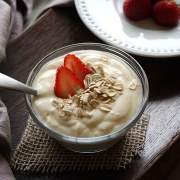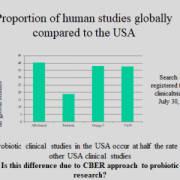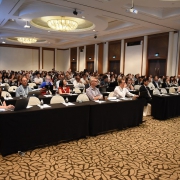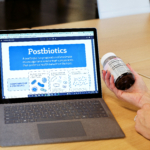Biotics for agricultural animals, with Prof. Steve Ricke PhD
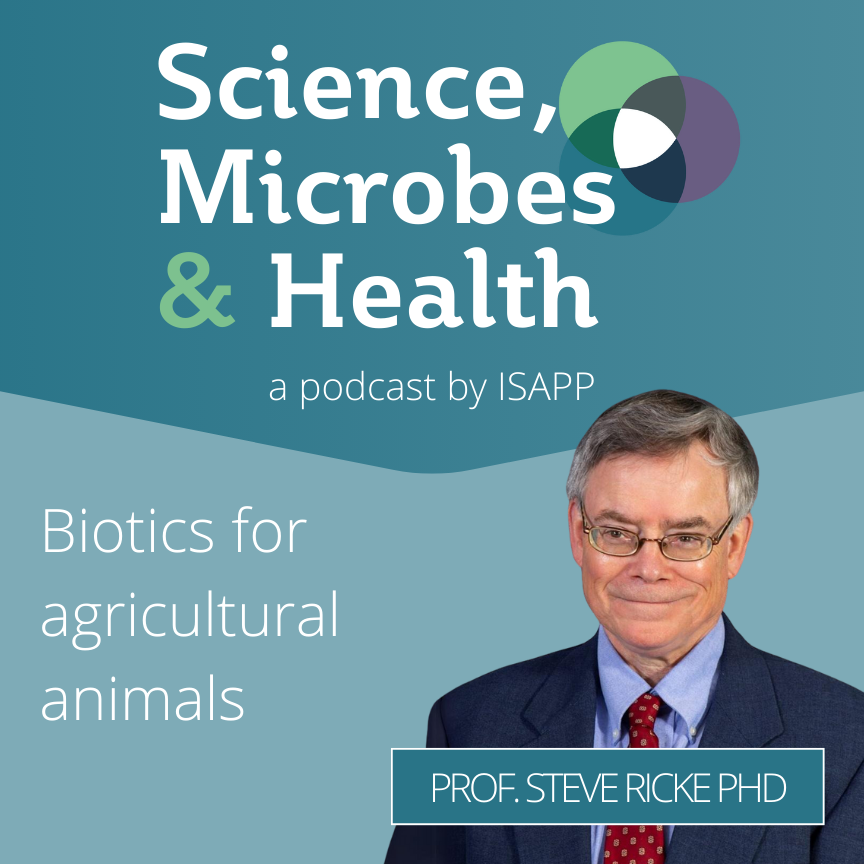
Podcast: Play in new window | Download
Subscribe: Apple Podcasts | Spotify | RSS
This episode, part of a series on the role of biotics in animal health, is a broad-ranging conversation on biotics for agricultural animals, with Prof. Steve Ricke PhD from University of Wisconsin-Madison. Prof. Ricke explains some of the different applications of biotics for poultry as well as swine and ruminants: rapid growth, efficient use of feed, and reducing inflammation. Biotics may also have a role in food safety as it relates to agricultural animals, with research showing how microbiome diversity shapes the impact of pathogens. Animal genetics, diet, and microbiome interactions are extremely complex and fortunately the tools to study these interactions have improved in the past several decades. Prof. Ricke urges scientists to take into account the microbial ecology surrounding the animal – and not to forget the potential impact of the animal on its environment.
Episode abbreviations and links:
- USDA/ARS: United States Department of Agriculture / Agricultural Research Service
- Article on approaches to poultry food safety: Strategies to improve poultry food safety, a landscape review.
- Article on method for early interventions in chickens: Applications of in ovo technique for the optimal development of the gastrointestinal tract and the potential influence on the establishment of its microbiome in poultry.
Additional resources:
ISAPP podcast with Prof. George Fahey PhD, a mentor of Prof. Ricke: Prebiotics for animal health
About Prof. Steve Ricke PhD:
Prof. Steven C. Ricke received his B.S. and M.S. from the Univ. of Illinois, Champaign-Urbana, IL. and Ph.D. from the Univ. of Wisconsin, Madison, WI. Prof. Ricke was a USDA-ARS postdoctorate in the Microbiology Department at North Carolina State Univ. then joined Texas A&M Univ. as a professor in the Poultry Science Dept. In 2005, he became the first holder of the new Donald “Buddy” Wray Endowed Chair in Food Safety and Director of the Center for Food Safety at the University of Arkansas (UA) and was a faculty member of the Dept. of Food Science and Cellular/ Molecular Graduate program. In 2020 he became the Director of the Meat Science and Animal Biologics Discovery Program in the Animal and Dairy Sciences Dept. at the University of Wisconsin-Madison. Prof. Ricke’s lab conducts studies on the growth, survival, and pathogenesis of pathogens in the poultry gut and their interactions with gut microbiota.

